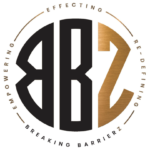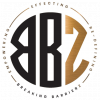
A recent Harvard Business Review article spotlighted a growing concern among employers: Gen Z employees are being terminated at higher rates than their older colleagues.
The reasons?
Employers report poor communication skills, a lack of accountability, and underdeveloped workplace etiquette. While these observations might feel like generalizations, they’re backed by data and echoed by hiring managers across multiple industries.
But behind the headlines lies a deeper issue: many Gen Z professionals entered the workforce during or shortly after the COVID-19 pandemic. They missed out on crucial in-person internships, job shadowing, and office culture immersion. In short, they were never formally taught the soft skills their employers now expect them to possess.

The Soft Skills Gap
Soft skills—like communication, adaptability, emotional intelligence, and professionalism—are not just “nice to have.” They’re essential for navigating complex workplace dynamics and building long-term career success. These skills are often learned through mentorship, real-world experience, and consistent feedback—opportunities Gen Z hasn’t always had.
The best way to help Gen Z thrive is not to criticize them—but to support them. Behind every successful professional, athlete, or leader, there is always a mentor who helped guide, challenge, and inspire them.

Practical Solutions for
Employers & Educators
Here is how we recommend bridging the soft skills gap and setting Gen Z up for long-term success
- Embed Mentorship into Workplace Culture
Mentorship is one of the most powerful tools to accelerate soft skill development. Pairing Gen Z employees with more experienced professionals helps them build confidence, improve communication, and gain perspective. A mentor can gently explain unwritten workplace rules that might otherwise feel like landmines.
- Focus on Real-World, Relatable Training
Traditional HR onboarding won’t cut it. Companies like Breaking BarrierZ offer interactive, self-paced training that speaks Gen Z’s language—focusing on real workplace scenarios with clear, actionable advice. The content covers everything from email etiquette to conflict resolution and professional accountability.
- Create Safe Feedback Loops
One of the biggest pain points for Gen Z is anxiety around feedback. They need regular, constructive communication—but delivered with empathy. Managers should aim to coach, not criticize. It’s not about lowering standards; it’s about teaching the expectations clearly and supportively.
- Model What You Expect
Soft skills are often caught, not taught. Leaders should model professionalism, punctuality, respectful communication, and ownership of mistakes. When these behaviors are visible and consistent, they become cultural norms that young employees can emulate.
Ready to Break BarrierZ?
The road to change starts here, and we got you every step of the way!
BBZ’s Employee Training & Development platform provides the necessary tools to prepare incoming talent and create an adaptable work culture. Crafted by our team of educators, legal experts, and industry leaders, our programs prepare employees to navigate the modern workplace from start to finish.
The Bottom Line
Gen Z is not lazy, entitled, or unemployable—they’re just new. And in many cases, they haven’t been given the same in-person, real-world training older generations had the benefit of receiving. Employers who invest in mentorship, soft skill development, and thoughtful onboarding will not only help Gen Z thrive—they’ll build stronger, more connected, and more resilient teams in the process.
It’s time to shift the narrative from “Why are Gen Z employees getting fired?” to “How can we help Gen Z succeed?”





